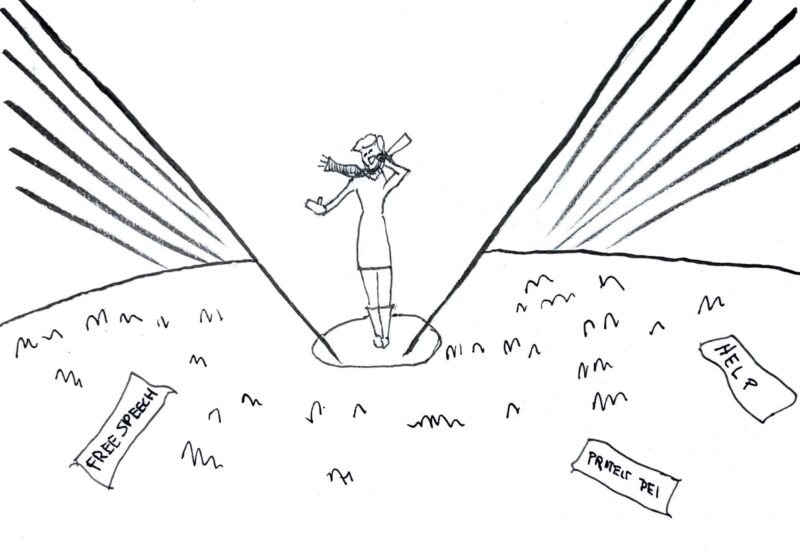The farther we get into our new normal, the more likely it seems at least some of us will have to endure another semester of online courses, what with travel restrictions and continuing concerns of prolonged stay-at-home orders.
The online switch blindsided everyone this semester, but now we can prepare for a semi-virtual (or completely virtual) fall. If we’re going to be expected to pay the same tuition, the current set of online learning guidelines won’t cut it.
So here’s what we want to see.
There needs to be greater standardization of how professors run their online courses. Administration should provide professors with detailed guidelines on how to run their courses, created with the worst case scenarios in mind. Such guidelines should be based on studies that explore what constitutes a successful online course.
Most professors have been understanding of extenuating circumstances. We commend the professors who’ve been lenient with deadlines and sympathetic to individual cases, as well as professors who have radically changed how their courses work to better fit online learning.
But this response hasn’t been universal. Some professors have put the burden to succeed remotely on their students. Adding pre-recorded lectures on top of regularly scheduled live zoom lectures or making tests harder to discourage cheating isn’t effective, healthy, or what we paid for.
These professors have no malicious intent — it was a messy transition for everyone. But we expect more in the fall.
With the summer to prepare, we need to standardize guidelines for professors to make their courses more equitable, educationally valuable, and compassionate.
The power is in the hands of professors who can decide what constitutes an extenuating circumstance or a reasonable accommodation. That power must be wielded responsibly and empathetically.
We also need to reevaluate how tests are conducted, and ensure that students in different time zones, with sick housemates, or with responsibilities like taking care of younger siblings are not at a disadvantage.
Students going through these difficulties should not have the additional burden of making sure their situation is accounted for. All academic structures must be designed with the worst situations in mind.
A Spanish test could give a student a 48-hour window to access the test, but three hours from the time the test is accessed to turn it in. This would allow students to carve out time that fits their schedules.
There is a major concern about academic dishonesty, but realistically, UR is unable to stop students from checking their notes, textbooks, or the internet anyway. Professors should make all exams open-book; comprehension can still be tested even if memorization can’t.
Testing isn’t the only major aspect of our online education we should consider. We will also need new strategies for engaging with one another.
Regardless of the discipline, you just don’t get the same educational experience when you’re completely isolated from others. Without that tangible sense of community, it’s easy to feel unmotivated and uninspired.
So much learning is facilitated by the continued conversations about last night’s reading with a classmate while walking out of class, or through a study group in iZone before a big test. How many of our most rewarding and enjoyable classes were the ones where we felt a sense of comradery with our classmates — even something as simple as classmates who we made eye contact with whenever the professor said something funny?
Fortunately, by the time remote classes began, we’d had half a semester to settle into our courses and develop connections in-person. When the switch to remote learning happened, we at least had a semblance of that pre-established environment to hold on to.
Next semester, we might not even have that. Professors will have to work harder to connect with their students and to get students to connect with each other.
There’s no one-size-fits-all way to develop this sense of community. It could take the form of mandatory study groups, mandatory participation to incentivize conversation, or even just supplying a list of emails and heavily encouraging students to reach out to one another. Maybe it just means checking in with students via email every month.
Everybody’s been feeling the effects of social distancing. Our desire for human connection cannot be completely fulfilled by online substitutes. Now that attending lectures and workshops are more painful and less mandatory, we need as much encouragement as we can get to stay engaged. What better way than through something we all love and need — human connection?
The Editorial Board is a weekly Opinions article representing the view of the Campus Times, co-written by Editor-in-Chief Wil Aiken, Publisher An Nguyen, Managing Editor Efua Agyare-Kumi, and Opinions Editor Hailie Higgins.



